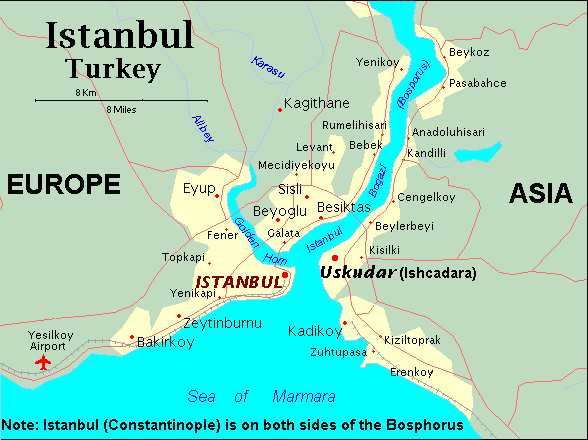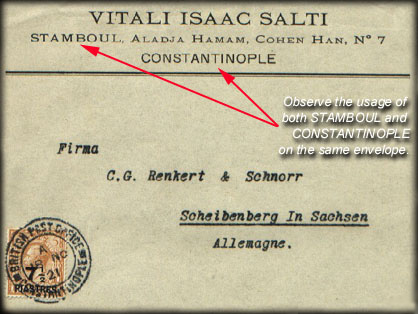Istanbul was Constantinople ?
Why the name change?
Istanbul is widely recognized as the name of Turkey's most well known city, but it was not always this way, and even today some confusion over its proper name still exists. The confusion is rooted in the various names the city assumed under the Ottomans in the centuries after their conquest of the city in 1453. Although the Ottomans did not purposely change the city's name, they opted to make "Constantinople" into a more Turkish style name "Konstantiniye" (which loosely translates as "of Constantine"), however variations on Konstantiniye soon cropped up.
"Stanbulin," (Greek for "to the city") once commonly found on road signs directing travelers to the capital, was punned by devout Turks into Islambol, where "Islam abounds." The names Islambol and Konstantiniye were used interchangeably in Ottoman documents up until the empire's demise in 1923. Westerners continued to refer to the city as Constantinople well into the 20th century. In the 19th century, however, the city's large foreign expatriate community took to calling the old city Stamboul. Western accounts of the old city during this period make regular references to the name.
Fig. 1. An envelope (circa 1921) sent from a Sephardi named Vitali Isaac Salti of Constantinople. This card demonstrates the usage of both Stamboul, and Constantinople. A common practice prior to the formation of the modern Republic of Turkey.Many times the Germans refer to Istanbul as 'Konstantinopel', the French and the British as 'Constantinople' and the Italians as 'Constantinopoli'. Although the official name of the city has, ever since the establishment of the Republic, been 'Istanbul' and great sensitivity shown on this subject, Europe resists the adoption of the name 'Istanbul'.
According to a popular story that has existed for many years, the Byzantines did not refer to the city by its actual name, but, because of it size, simply as 'Polis' (the City), and when they wanted to say 'to the City', they said 'eist enpolin' (is-tin-polin), which was the (possible) origin of the name 'Istanbul'. Recent research has shown that the name 'Istanbul' was used if not during the Byzantine period, at least during the 11th century and that the Turks knew the city by this name. Istanbul has had other names at various times but none of them was used widely or for any great length of time. During the Turkish period the names 'Dersaadet' and 'Deraliye' were used. Some official correspondence and coins had the transcription of 'Konstantinoupolis'or 'Konstantiniye', although the use of the name 'Konstantiniye' was prohibited at one time during the Ottoman period by Sultan Mustafa III, its use continued, to be abandoned during the republican period.

Fig. 2. Map demonstrating the physical division of Istanbul by the Bosporus River.
The name controversy was assumed to be settled when Atatürk officially renamed the city Istanbul in the 1920s. It took Westerners a few decades to accept the name, as Constantinople continued to appear on maps well into the 1960s, when it began to appear in parentheses next to Istanbul. The Greeks still do not use the Turkish name, and Konstantinopolis continues to be used on maps and road signs in Greece today.



